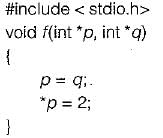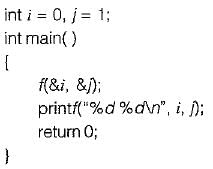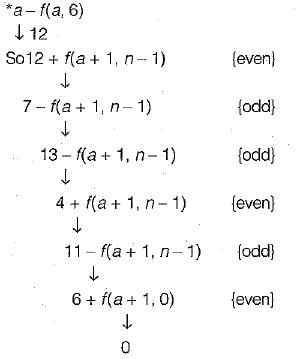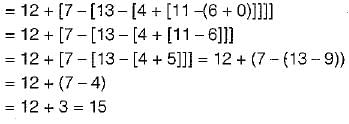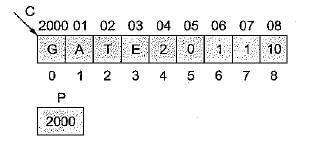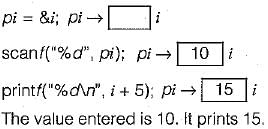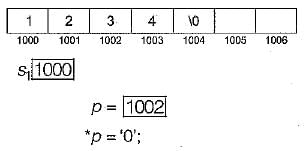Test: Programming in C++, C & Java- 2 - Computer Science Engineering (CSE) MCQ
15 Questions MCQ Test - Test: Programming in C++, C & Java- 2
What does the following C-statement declare?
int (*f) (int *);
int (*f) (int *);
A common property of logic programming languages and functional languages is
Which of the following are essential features of an object-oriented programming languages?
1. Abstraction and encapsulation
2. Strictiy-typedness
3. Type-safe property coupled with sub-type rule
4. Polymorphism in the presence of inheritance
Early binding refers to a binding performed at compile time and late binding refers to a binding performed at execution time. Consider the following statements:
(i) Static scope facilitates w1 bindings.
(ii) Dynamic scope requires w2 bindings.
(iii) Early bindings w3 execution efficiency.
(iv) Late bindings w4 execution efficiency.
The right choices of w1, w2, w3 and w4 (in that order) are
Match the programming paradigms and languages given in the following table:

Codes:
Which combination of the integer variables x, y and z makes the variable a get the value 4 in the following expression?
a = (x > y) ? ((x > z) ? x : z) : ((y > z) ? y : z)
What is the value printed by the following C program?
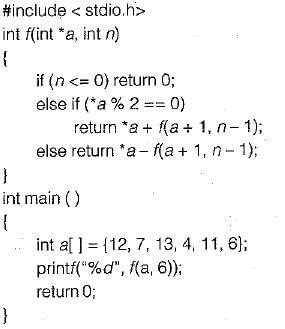
What does the following fragment of C program print?

Consider the following program in C language:
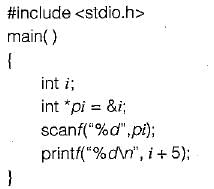
Which one of the following statements is TRUE?
Consider the C function given below:
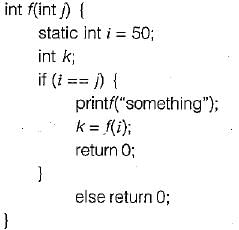
Which one of the following is TRUE?
Consider the following C program segment:
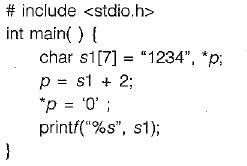
What will be printed by the program?
Which of the following comments are not true?
1. C provides no input-output features
2. C provides no file access features
3. C borrowed most of its ideas from BCPL
4. C provides no features to manipulate composite objects
Which of the following are not keywords in C?



